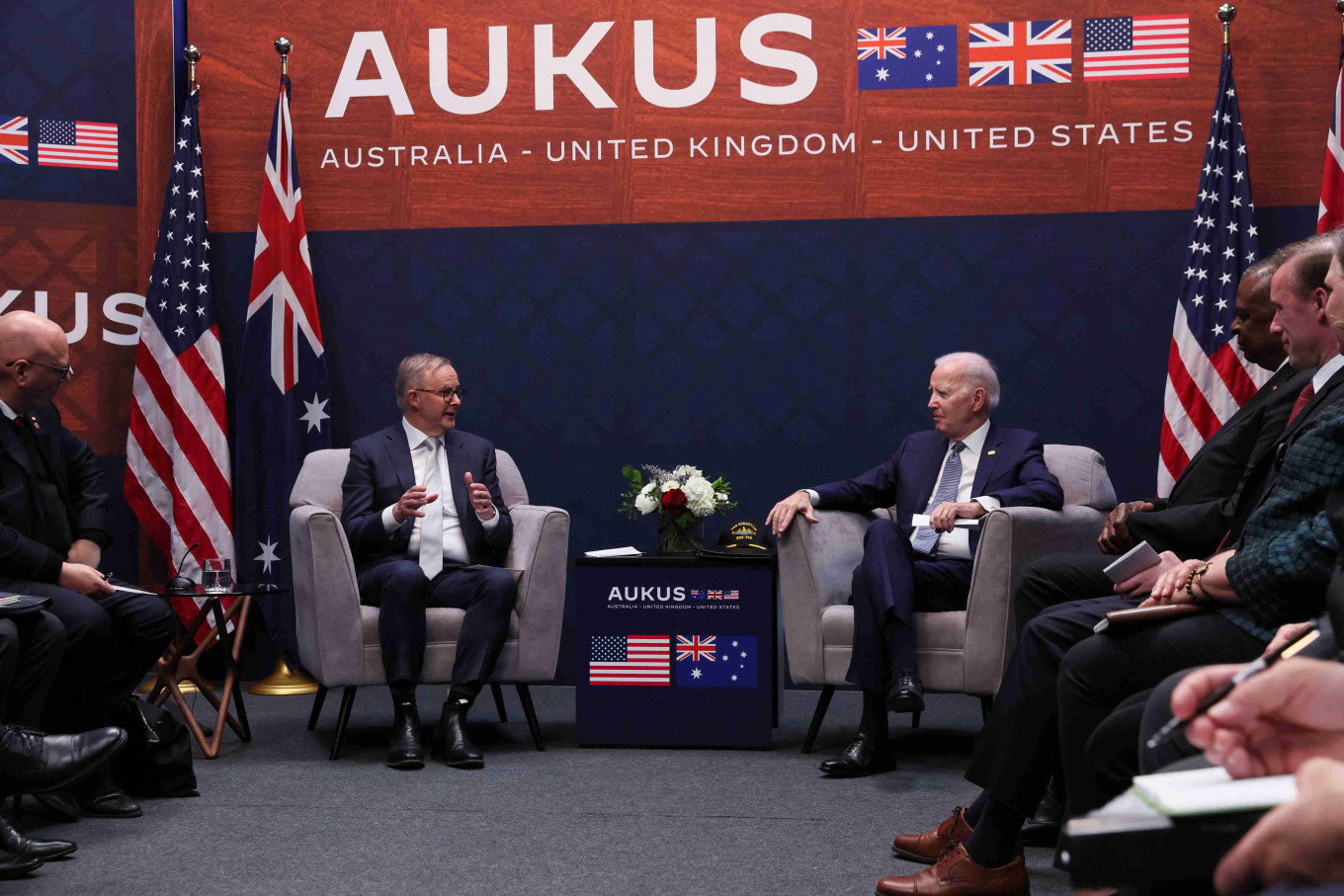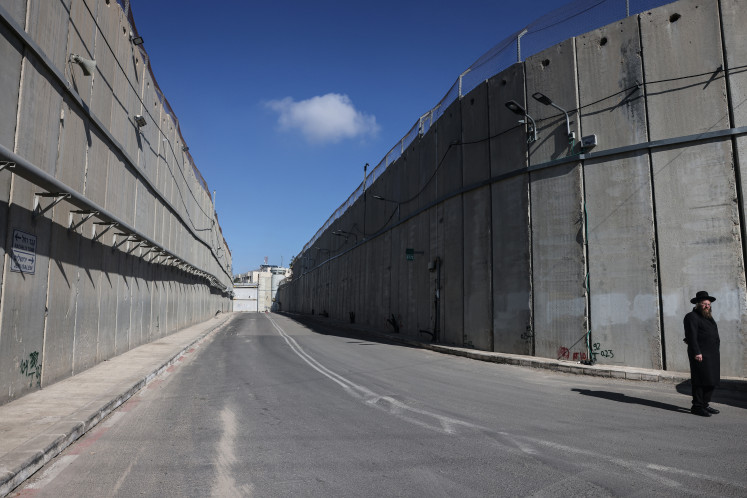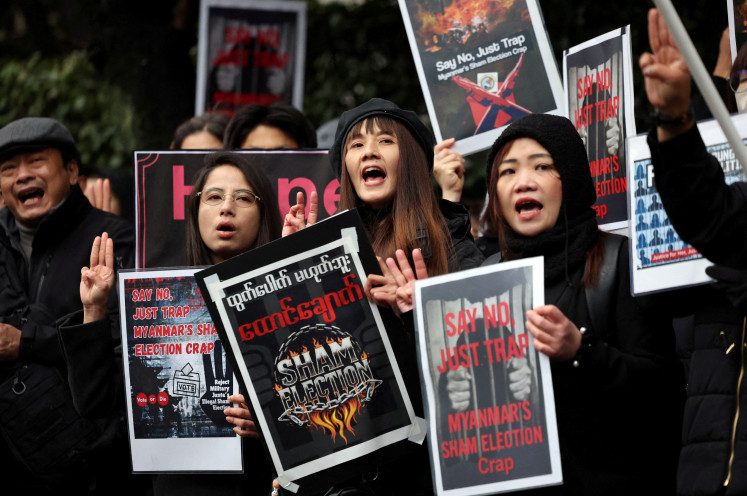Popular Reads
Top Results
Can't find what you're looking for?
View all search resultsPopular Reads
Top Results
Can't find what you're looking for?
View all search resultsAustralia's nuclear submarine plan to cost up to $245 billion by 2055: Official
Change text size
Gift Premium Articles
to Anyone
A
ustralia's nuclear-powered submarine program with the United States and Britain will cost up to A$368 billion ($245 billion) over the next three decades, a defense official said on Tuesday, the country's biggest single defense item in history.
US President Joe Biden, Australian Prime Minister Anthony Albanese and British Prime Minister Rishi Sunak on Tuesday unveiled details of a plan to provide Australia with nuclear-powered attack submarines, a major step to counter China's naval build up in the Indo-Pacific.
Albanese said the program would start with a A$6 billion ($4 billion) investment over the next four years to expand a major submarine base and the country's submarine shipyards, as well as train skilled workers.
"This will be an Australian sovereign capability - built by Australians, commanded by the Royal Australian Navy and sustained by Australian workers in Australian shipyards," Albanese said in San Diego, California.
"The scale, complexity and economic significance of the investment is akin to the creation of the Australian automotive industry in the post-war period," Albanese added.
Australia will also provide A$3 billion to expand shipbuilding capacity in the US and Britain, with the bulk of the money destined to speed up production of US Virginia-class submarines.
The total cost of the submarine program is estimated to be A$268 billion to A$368 billion by 2055, or roughly 0.15% of gross domestic product per year, a defense official told Reuters.
The price tag involves the cost of building submarines as well as associated infrastructure and training, and the program would create 20,000 jobs in Australia over three decades.
Australian Treasurer Jim Chalmers said the decision was "a game-changing investment" as the government, in the face of mounting pressure on the federal budget and protracted deficits, fielded questions on the price tag.
"Australia can't afford not to do this ... it will be worth every cent when it comes to our national security, our national economy," Chalmers told reporters.
Opposition leader Peter Dutton, who was the defense minister when AUKUS was announced in 2021, said he would support the submarine deal "come hell or high water".
The first Australian SSN-AUKUS boat, as the new class of submarines has been dubbed, will be delivered in 2042, and one will be built every three years until the fleet reaches eight.
The new AUKUS submarines will be built in the state of South Australia, with A$2 billion spent on infrastructure. A naval base in Perth will be the home for the new submarine fleet, upgraded at a cost of A$8 billion over a decade and generating 3,000 jobs, documents and statements released by Australia on Tuesday showed.
US nuclear-powered submarines will visit Western Australia more frequently this year, with British submarines making port visits starting in 2026.
From 2027 the Perth base, HMAS Stirling, will be host to a rotational presence of British and US nuclear-powered submarines to build Australia's experience.
Australia will manage all radioactive waste domestically, with the defense Department choosing a site for the storage of high-level waste this year, defense officials said.
"Yes, it’s an eye-watering price tag, but the alternative is an even heavier cost to Australia’s security and sovereignty down the track," said Australian Strategic Policy institute executive director Justin Bassi.










